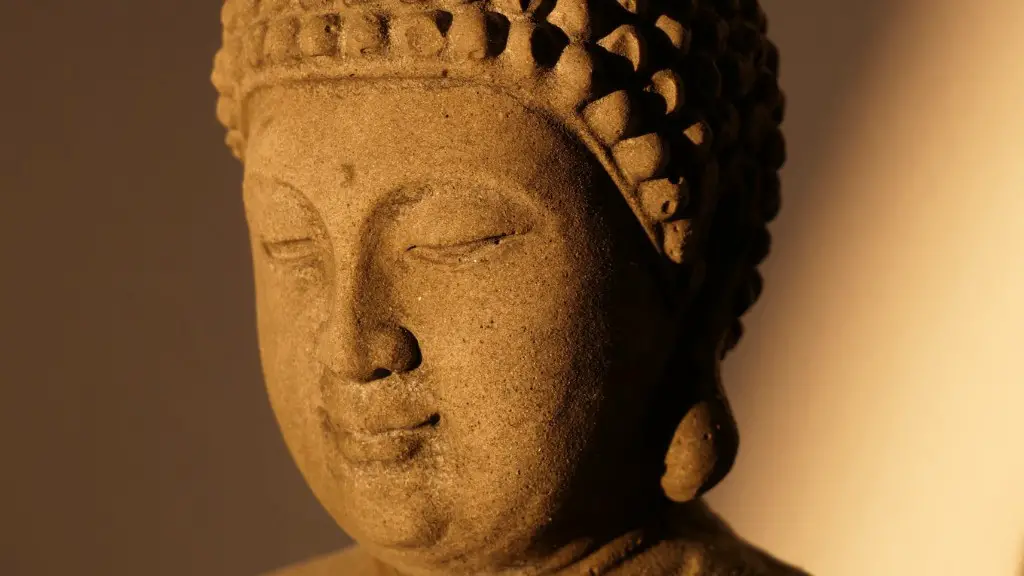Buddhism is often viewed as a religion, but it is also a philosophy and a way of life. The basic principles of Buddhism—the Four Noble Truths and the Noble Eightfold Path—can provide insight and guidance in dealing with the challenges and difficulties we all face in life.
Buddhism teaches that suffering is inevitable, but that it is also possible to find freedom from suffering. The path to liberation from suffering is through awareness and understanding of the true nature of reality.
The Four Noble Truths are the foundation of Buddhist teaching. They are:
1. Suffering exists
2. There is a cause of suffering
3. There is an end to suffering
4. There is a path to the end of suffering
The Noble Eightfold Path is the path to the end of suffering. It includes Right Understanding, Right Thought, Right Speech, Right Action, Right Livelihood, Right Effort, Right Mindfulness, and Right Concentration.
Buddhism teaches that we all have the ability to awaken our true nature, which is pure, perfect, and full of love and compassion. Through our own efforts and the grace of the Buddhas and bodhisattvas,
Buddhism can help you by teaching you how to live in the present moment and to be mindful of your thoughts, emotions, and actions. Buddhism can also help you to develop compassion for yourself and others.
How can Buddhism change your life?
Buddhism is a religion that is based on the philosophy that change is inevitable. Our thoughts are constantly changing, as are things around us. Friends and even family can come and go, so can our belongings. Buddhism teaches us that the more we try and hold on to things, the more grief and suffering this will cause us.
Buddha’s teachings, also known as “dharma,” emphasize wisdom, kindness, patience, generosity, and compassion as important virtues. All Buddhists live by five moral precepts, which prohibit taking life, taking what is not given, engaging in sexual misconduct, lying, and using intoxicants.
How is Buddhism used in everyday life
Buddhism is a religion and philosophy that originated in India in the 6th century BCE. The core teachings of Buddhism are known as the Four Noble Truths, which are that life is suffering, that suffering is caused by attachment and craving, that suffering can be ended by ceasing attachment and craving, and that this can be achieved by following the Eightfold Path.
Buddhism can be practiced in daily life by following the Eightfold Path, which includes practicing mindfulness, cultivating kindness, and living in an interdependent world.
Buddhism has a special role to play in the modern world because, unlike many other religious traditions, Buddhism uniquely propounds the concept of independence, which accords closely with the fundamental notions of modern science. In particular, the Buddha’s teaching that all things are impermanent and interconnected emphasizes humanity’s need to take responsibility for our own actions and to be mindful of the consequences of those actions. This message is more relevant than ever in today’s world, where we are increasingly aware of the interconnectedness of all life and the need to live in harmony with each other and the natural world.
How does Buddhism affect behavior?
Buddhism teaches that there is a feedback loop between our actions and their consequences. Our actions shape our future, and our future shapes our actions. This feedback loop allows us to constantly question the way we are living our lives and make improvements.
Buddhism is a religion that is based on the teachings of Siddhartha Gautama. The main principles of this belief system are karma, rebirth, and impermanence. Buddhists believe that life is full of suffering, but that suffering can be overcome by attaining enlightenment.
Why are Buddhist teachings important?
Buddhism is a religion and philosophy that began with the teachings of Siddhartha Gautama, who is known as the Buddha. Buddhists follow the teachings of the Buddha in order to end suffering and achieve Nirvana. The Buddha taught that the way to end suffering is to end the cycle of birth and death, which can be achieved by following the Eightfold Path. This path includes the Nirvana Steps of right understanding, right thought, right speech, right action, right livelihood, right effort, right mindfulness, and right concentration.
In today’s modern world, being a Buddhist means striving to remain mindful and self-accountable for my own peace of mind. I strive to see the good in every living being, realizing that we all make bad decisions as a result of suffering and misperception. I strive to be kind, forgive myself and others.
What is the most important day for Buddhists
Vesak is a significant religious festival for followers of Buddhism. It commemorates the birth, enlightenment and death of Gautama Buddha, and is typically observed with a day of fasting, meditation and reciting of scriptures. Offerings are also made to statues or images of the Buddha, and special prayers are recited.
Buddhism has had a significant impact on social life, contributing to the development of egalitarianism. It has raised voice against caste discrimination and social oppression, and has helped in the upliftment of women by making religion and education accessible to them. The doctrine of ‘Ahimsa’ (non-violence) has encouraged virtues like kindness and consideration among the people.
What are strengths of Buddhism?
The Five Strengths are faith, energy, mindfulness, concentration, and wisdom. They are one of the seven sets of Bodhipakkhiyadhamma (“qualities conducive to enlightenment”).
The Five Strengths are important because they help us to develop the qualities we need to achieve enlightenment.
The Five Strengths are:
1. Faith: Having faith in the Buddha, the Dharma, and the Sangha.
2. Energy: Having the energy to practice the Dharma.
3. Mindfulness: Having mindfulness of the body, feelings, thoughts, and dhammas.
4. Concentration: Having concentration on the object of meditation.
5. Wisdom: Having wisdom that apprehends the true nature of reality.
The monks’ daily life revolves around meditation, study of scriptures, and taking part in ceremonies. In order to effectively perform their duties, they must maintain a strict daily schedule. There are Buddhist shrines, monasteries, and stupas all over the world, providing a place for the monks to live and worship.
How does Buddhism view mental illness
For Buddhists, well-being and non-well-being are both states of being that fall along a continuum. Though dis-ease is typically seen as an absence of ease, Buddhists interpreted it less as an illness and more as a consequence of factors such as ignorance, attachment to ego-self, and delusion. In other words, failing to see reality as it is can lead to negative states of being.
The Four Noble Truths significantly summarize the core of Buddha’s teachings. They emphasize the existence of suffering, its causes, its potential end, and the way to end it. Although the Four Noble Truths leave some aspects unexplained, they provide a thorough and powerful framework for understanding the human condition.
What are the 5 Buddhist values?
The Five Precepts are the basic code of ethics for Buddhists. They are:
1. Refrain from taking life
2. Refrain from taking what is not given
3. Refrain from the misuse of the senses
4. Refrain from wrong speech
5. Refrain from intoxicants that cloud the mind.
Buddhism is an important world religion that started in India. It is one of the world’s major religions, with over 500 million followers worldwide. Buddhism started in India around 2,500 years ago, and has since spread to countries all over the world.
Buddhists believe in the Four Noble Truths, which are that suffering exists, that suffering is caused by attachment and desire, that suffering can be ended, and that the way to end suffering is through the Eightfold Path.
The Buddha was a real historical person, born Siddhartha Gautama in Nepal in the 6th century BCE. He was a prince who left his comfortable life to seek understanding of the human condition. After many years of study and meditation, he attained enlightenment and began teaching others what he had learned.
Buddhism is a religion of peace and compassion. Buddhists strive to live in harmony with all beings, and to do good deeds that benefit others.
Warp Up
There is no single answer to this question as Buddhism can help individuals in a variety of ways depending on their specific situation. In general, however, Buddhists believe that the practice can help individuals to find inner peace and contentment, to develop compassion and wisdom, and to lead more ethical and fulfilling lives.
Buddhism can help you by teaching you to be more mindful of your thoughts and actions. It can also help you to become more compassionate and to see the interconnectedness of all beings.


